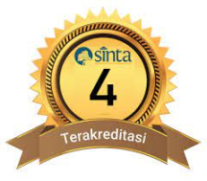PENGARUH PENGGUNAAN LKPD BERORIENTASI KOMPLEKSITAS KONTEN DAN PROSES KOGNITIF DALAM MODEL PEMBELAJARAN PROBLEM BASED LEARNING TERHADAP PENCAPAIAN KOMPETENSI FISIKA PESERTA DIDIK KELAS X SMAN 7 PADANG
Abstract
This research was motivated by the poor quality of the competence of physics students in high school caused by various factors, including the existence of teaching materials are applied educators. Students worksheet (LKPD) is one form of teaching materials. The purpose of this study was to find the effect of application LKPD based on dimension of knowledge and cognitive processes in Problem Based Learning (PBL) toward the competence of physics students at grade X SMAN 7 Padang. The type of research was a quasi experiment research with randomized control group only design. The population was all students at grade X MIA SMAN 7 Padang who were registered in the 2016/2017. The technique sampling was purposive sampling. The data of research are aspects of attitude acquired through observation sheets, aspects of the knowledge acquired through achievement test, and aspects of the skills acquired through the sheet performance. Materials physics involved in this study about the uniform circular motion and dynamic of objects motion. To find the effect of application LKPD done by statistical t-test, followed by a simple linear regression analysis and test product moment correlation to the variables of the study. Based on data analysis competence of physics students in aspects of attitudes, knowledge, and skills of the experimental class respectively 81.79, 83.3, and 81.74 is higher than the control class is 78.85, 78.62, and 78.30. T test results that there is a significant difference between the competence of physics students learners using LKPD based on dimension of knowledge and cognitive processes compared to those without. From the results of data analysis with a significance level of 0.05 was obtained effect of application LKPD based on dimension of knowledge and cognitive processes in the aspect of attitudes, knowledge, and skills, respectively for 13.88%, 33.27% and 14.49%.
Full Text:
PDFDOI: http://dx.doi.org/10.24036/2514171074








